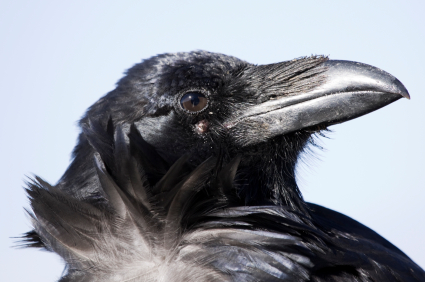By Marc Davis
Another guest essay comes to us from Marc Davis, a two-fisted ex-newspaper reporter (among other things), and a guy who probably has read any book you’ve read and seen every movie you’ve seen. He knows a few things about classic bird poems, too.
World literature from contemporary times to before antiquity is replete with many a bird, real and imaginary. In Biblical times there was Noah’s famous dove, the winged creature he sent in search of dry land when the deluge had subsided and the rainbow appeared. The dove returned to the ark with an olive branch, signifying that the flood waters had retreated and the world with its people, beasts and birds could begin anew.
Then there is the legendary Blue Bird of Happiness that lives in your backyard. There’s no need for two-fisted birdwatchers to hunt for it everywhere around the globe except at home, where it resides awaiting your greeting and ready to bestow upon you its namesake gift.
As the opposite of the happy bird cited above, there is a dark and accursed bird, also the object of an international quest. Boundless avarice, betrayal and murder were inspired in those who sought it: The Maltese Falcon. Gutman, the fat man, tells us why the bird was so avidly hunted in Dashiell Hammett’s tale of the same title. Gutman tells P.I. Sam Spade that the bird, made of pure gold and encrusted with precious jewels, was the loot and plunder of the Levant, stolen by the Knights of Malta and paid in tribute to the King of Spain, the Emperor, Charles the Fifth. Greed undid all who pursued it.

- “Nevermore…”
But of all literature’s many birds my favorite is the talking bird with the one-word vocabulary: “Nevermore.” No bird or word more perfectly sums up the gloomy fact that what is past is past. The raven proclaims with that solitary utterance that there’s futility in mourning what is lost. Still, the brooding, disconsolate narrator of the poem in which the bird appears, grieves endlessly for his passionate, selfless lover, the lost Lenore. And all the while through long rhyming lamentations, that foul bird perches overhead on the mourner’s chamber door, and will remain there throughout eternity, a winged reminder of our own mortality.
